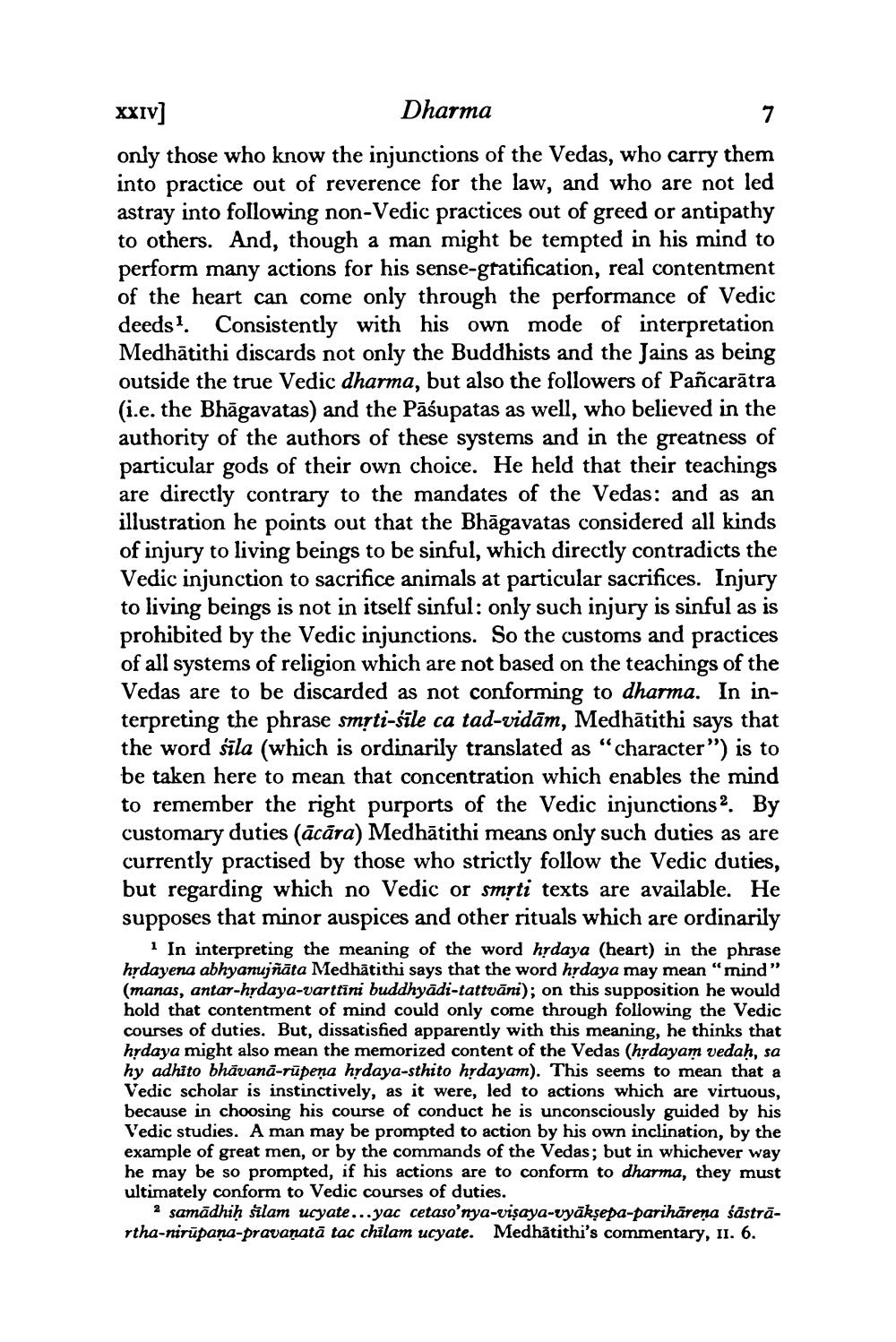________________
Dharma
7
XXIV]
only those who know the injunctions of the Vedas, who carry them into practice out of reverence for the law, and who are not led astray into following non-Vedic practices out of greed or antipathy to others. And, though a man might be tempted in his mind to perform many actions for his sense-gratification, real contentment of the heart can come only through the performance of Vedic deeds1. Consistently with his own mode of interpretation Medhātithi discards not only the Buddhists and the Jains as being outside the true Vedic dharma, but also the followers of Pañcarātra (i.e. the Bhāgavatas) and the Pasupatas as well, who believed in the authority of the authors of these systems and in the greatness of particular gods of their own choice. He held that their teachings are directly contrary to the mandates of the Vedas: and as an illustration he points out that the Bhāgavatas considered all kinds of injury to living beings to be sinful, which directly contradicts the Vedic injunction to sacrifice animals at particular sacrifices. Injury to living beings is not in itself sinful: only such injury is sinful as is prohibited by the Vedic injunctions. So the customs and practices of all systems of religion which are not based on the teachings of the Vedas are to be discarded as not conforming to dharma. In interpreting the phrase smṛti-sile ca tad-vidām, Medhātithi says that the word sila (which is ordinarily translated as "character") is to be taken here to mean that concentration which enables the mind to remember the right purports of the Vedic injunctions2. By customary duties (ācāra) Medhātithi means only such duties as are currently practised by those who strictly follow the Vedic duties, but regarding which no Vedic or smrti texts are available. He supposes that minor auspices and other rituals which are ordinarily
1 In interpreting the meaning of the word hydaya (heart) in the phrase hṛdayena abhyanujñāta Medhâtithi says that the word hydaya may mean "mind" (manas, antar-hṛdaya-varttini buddhyādi-tattvāni); on this supposition he would hold that contentment of mind could only come through following the Vedic courses of duties. But, dissatisfied apparently with this meaning, he thinks that hṛdaya might also mean the memorized content of the Vedas (hrdayam vedaḥ, sa hy adhito bhāvanā-rūpeṇa hṛdaya-sthito hṛdayam). This seems to mean that a Vedic scholar is instinctively, as it were, led to actions which are virtuous, because in choosing his course of conduct he is unconsciously guided by his Vedic studies. A man may be prompted to action by his own inclination, by the example of great men, or by the commands of the Vedas; but in whichever way he may be so prompted, if his actions are to conform to dharma, they must ultimately conform to Vedic courses of duties.
2 samādhih silam ucyate...yac cetaso nya-visaya-uyāksepa-parihārena sāstrārtha-nirupaṇa-pravaṇatā tac chilam ucyate. Medhātithi's commentary, II. 6.




